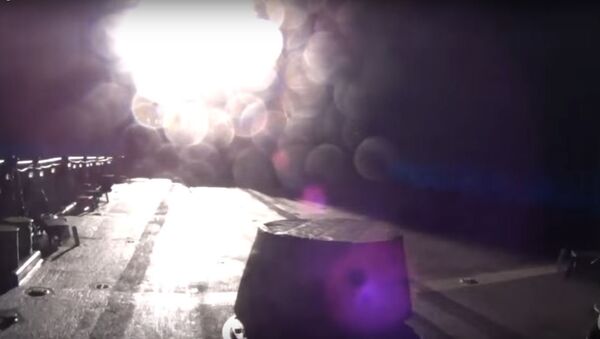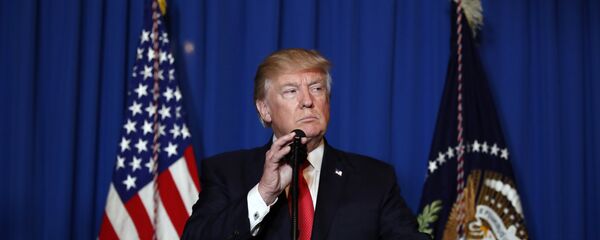WASHINGTON (Sputnik) — On Thursday night, Trump approved the launching of 59 Tomahawk cruise missiles to strike military targets in Syria in response to the use of chemical weapons, allegedly by Syrian forces in the village of Khan Shaykhun though no evidence to confirm the claims have emerged.
"What it tells the world is that we have an administration that shoots first and asks questions later, led by a president who is emotionally affected by television and impulsively responsive to its narratives," Freeman, a former US ambassador to Saudi Arabia said on Friday.
"There is no doubt that the aircraft that bombed the site in Idlib took off from and returned to the base at Shayrat. Neither the Assad government nor the Russians dispute the fact that the chemical weapons burst in Idlib coincided with their bombing of an Islamist rebel-held base there," Freeman recalled.
No one disputed that some sort of nerve gas was involved in the resulting deaths, he acknowledged.
"What is in doubt is whether chemical weapons were airborne in the Syrian aircraft or stored on the ground in the rebel-held area," Freeman observed.
"No one knows what policy lies behind this set of cruise missile strikes. No one knows or has asked ‘and then what?’ In the absence of strategy, every move is a tactical response to events that provokes counter-moves without necessarily achieving anything," he said.
Freeman predicted that Russia would respond by sending more defensive weapons to both Syria and Iran.
"In this case, we will see a significant strengthening of Syrian (and Iranian) air defenses by Russia," he said.
Freeman also warned that if the chemical weapons attack had been staged to draw the United States into conflict with Syria, it could be followed by similar provocations.
"If, the chemical weapons explosion was not something intended by the Assad regime but rather staged by its enemies to enlist the United States in military action against it, the success of that approach will encourage further provocations designed to manipulate Washington," Freeman added.
The Islamic State (ISIL), also known as Daesh and its supporters in the Arab Gulf Emirates and Turkey would benefit from Trump’s impulsive action, Freeman explained.
"The Islamist rebels and their Gulf Arab and Turkish are the clear winners of this series of events… Both the Saudis and the Turks who have a history of collusion in false flag operations… And the danger of a wider war in the Middle East has gone up," he noted.
Chas Freeman is a lifetime director of the Atlantic Council and held senior level positions at the US Department of Defense.




